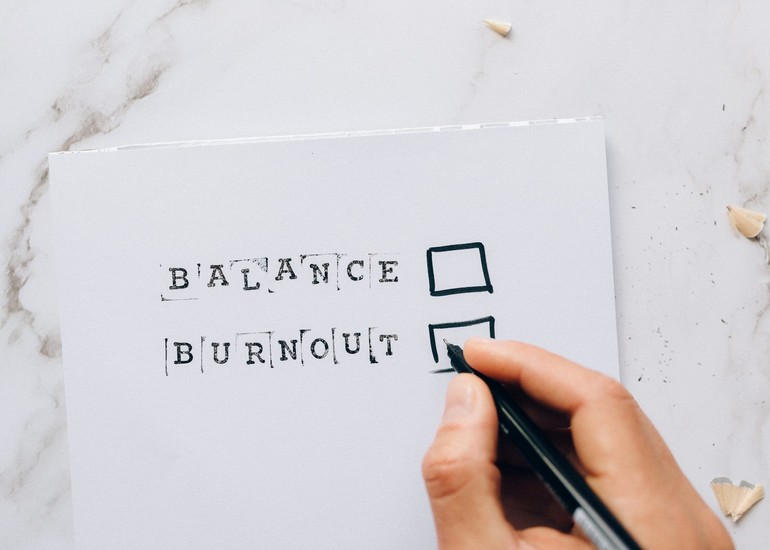Know your Limit and Avoid Work Burnout

Since the start of the pandemic, many people have experienced higher levels of stress and exhaustion. When these periods of fatigue last longer than normal, and even short breaks don’t provide relief, this can be a sign of burnout. In today’s blog, we’ll dive deeper into work burnout and provide some solutions and ways to turn your stress into an opportunity for personal growth.
What is Burnout?
Prolonged exposure to increased stress leads to burnout. In an article on Thrive Global, they state, “the definition of burnout was first coined by psychologist Herbert Freudenberger in 1974, when he described it as “a depletion or exhaustion of a person’s physical or mental resources attributed to his or her prolonged, yet unsuccessful striving toward unrealistic expectations, internally or externally derived. Burnout is about not having enough energy, motivation, or passion.”
Signs of Burnout
There are a lot of signs of work burnout, some of the most common include:
- Fatigue, both physical and emotional
- Developing an unhealthy relationship to food and alcohol
- Insomnia
- Numbing out with internet and television
- Not getting pleasure from the things we normally enjoy
- Increased irritability and frustration
- Feeling tired and rundown
- Decreased productivity and a loss of enthusiasm and meaning in our work
What’s causing our burnout can be work overload, work with high emotional intensity, or a lack of acknowledgment, awards, and support at work. Those most prone to work burnout are workaholics and perfectionists who are so dedicated to the work, and doing good work continuously, that it leads to burnout.
The Remedy
The first step is to identify the sources of stress in your life, recognize that your job stress is getting to the best of you and take steps to find a resolution. Have you not taken a vacation or time off since the start of the pandemic? Perhaps it’s time to unplug and reset. You’ll likely come back to work more focused and refreshed. If you’re not in the position to go on vacation, at least consider taking a “mental health day”. Additionally, see what steps you can take in the workplace to mitigate stress. Are there meetings you can skip and instead spend that time completing a task? Is there anything at work you can delegate? Talk to your boss and see where you can get a bit more time in your day that way you don’t need to work overtime. Also, remember to pace yourself. Moderation and balance are key. If you’ve been intensely pushing it at work, it’s time to try and back off.
Another suggestion comes from the same Thrive Global article, where clinician and therapist, Robert C. Ciampi, says, “Burnout is a matter of recovery from a debilitating state of emptiness and exhaustion from which it takes time to recover. A strategy I often recommend to my clients is to take life one day at a time or, even better, one hour at a time, breaking up the pressures we face into manageable chunks. It works for me! Give yourself the time you need to “detox” from the day-to-day “addiction” you experience every day. And remember to call a therapist as soon as you begin to feel overly stressed with everyday life.”
Finally, good self-care is also key to avoiding burnout. Connecting with others and doing things that bring you joy is imperative for your well-being. Also, look into ways to reduce the intensity in your life. Some examples of this may be skipping the evening news or ordering dinner instead of making it after a long day at the office. Think about simple steps to make your personal life a bit easier so you can handle and manage the other areas of stress in your life.